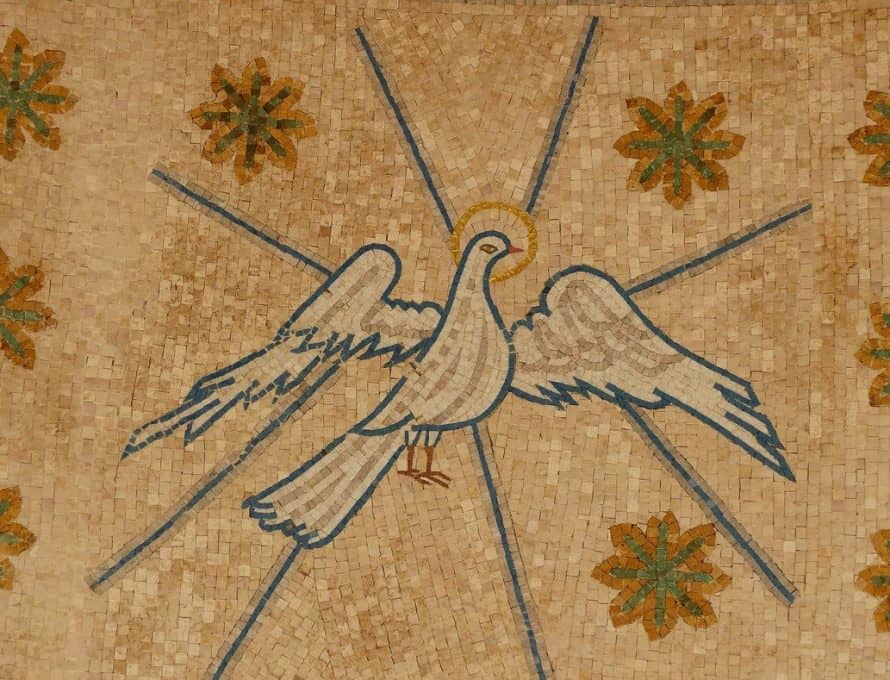Following is another in a series of columns on the Baptist Faith & Message 2000.
Article II-C of the Baptist Faith & Message 2000 reads:
“The Holy Spirit is the Spirit of God, fully divine. He inspired holy men of old to write the Scriptures. Through illumination He enables men to understand truth. He exalts Christ. He convicts men of sin, of righteousness, and of judgment. He calls men to the Saviour, and effects regeneration. At the moment of regeneration He baptizes every believer into the Body of Christ. He cultivates Christian character, comforts believers, and bestows the spiritual gifts by which they serve God through His church. He seals the believer unto the day of final redemption. His presence in the Christian is the guarantee that God will bring the believer into the fullness of the stature of Christ. He enlightens and empowers the believer and the church in worship, evangelism, and service.”
In some ways, the Holy Spirit is the neglected, if not forgotten, member of the Trinity.
The biblical doctrines of foreknowledge, election, predestination, and adoption awaken us to the eternal love of God the Father.
Through the Incarnation, the second person of the triune Godhead becomes flesh and pitches his tent with us (John 1:14). He experiences in full measure what it means to be human, including facing temptation – yet without sinning so that he may clothe us in God’s righteousness (2 Cor. 5:21).
Christians are said to have a personal relationship with Jesus Christ and to be the adopted sons and daughters of God the Father.
But where is the Holy Spirit in all of this? As we know from Scripture, none of the persons of the Godhead acts alone. As such, the Holy Spirit is a co-equal and co-eternal partner in all of the Trinity’s work.
So, it’s important for us to understand how thoroughly the Bible depicts both the personhood and deity of the Holy Spirit.
The Spirit’s personhood
One of the clearest demonstrations of the Holy Spirit’s personality is his use of personal pronouns in reference to himself. Two examples make this plain:
Acts 10:19-20 – “While Peter was thinking about the vision, the Spirit told him, ‘Three men are here looking for you. Get up, go downstairs, and go with them with no doubts at all, because I have sent them.’”
Acts 13:1-2 – “Now in the church at Antioch there were prophets and teachers: Barnabas, Simeon who was called Niger, Lucius of Cyrene, Manaen, a close friend of Herod the tetrarch, and Saul. As they were worshiping the Lord and fasting, the Holy Spirit said, ‘Set apart for me Barnabas and Saul for the work to which I have called them.’”
Note that the Holy Spirit speaks personally to Peter as well as to believers in the Antioch church. These are actions of a sentient being, not an impersonal force.
Jesus also uses personal pronouns to speak of the Holy Spirit, telling his followers,
“When the Spirit of truth comes, he will guide you into all the truth. For he will not speak on his own, but he will speak whatever he hears. He will also declare to you what is to come. He will glorify me, because he will take from what is mine and declare it to you” (John 16:13-14).
According to Jesus, the Holy Spirit arrives, guides, discerns the truth, hears and speaks, discloses future events, testifies about Jesus, and glorifies him – all demonstrations of personhood.
Finally, Scripture describes the Spirit’s personal activities, which include speaking (Acts 8:29), revealing (Acts 21:11), interceding (Rom. 8:26-27), and distributing spiritual gifts (1 Cor. 12:6, 11). The Spirit also may be blasphemed (Matt. 12:31), grieved (Eph. 4:30), lied to (Acts 5:3-4), and insulted (Heb. 10:28-29).
The Spirit’s deity
What do we see the Spirit doing that only God can do?
For starters, the Holy Spirit creates (Gen. 1:1-2; Ps. 104:30). The Spirit also demonstrates omniscience and omnipresence, displaying qualities that establish him as co-equal and co-eternal with the Father and the Son (1 Cor. 2:10-11; Ps. 139:7-8).
What’s more, the Spirit shares a divine name, symbolic of divine presence, with the other members of the triune Godhead (Matt. 28:19).
Perhaps the clearest passage that illustrates both the personality and deity of the Holy Spirit is found in Acts 5. After Ananias and Sapphira fraudulently claim to have given the full proceeds of a land sale to the church, Peter confronts Ananias, asking, “[W]hy has Satan filled your heart to lie to the Holy Spirit and keep back part of the proceeds of the land? Wasn’t it yours while you possessed it? And after it was sold, wasn’t it at your disposal? Why is it that you planned this thing in your heart? You have not lied to people but to God” (vv. 3-4).
To whom did Ananias lie: to the Holy Spirit, or to God? The answer, of course, is that Ananias lied to both. To lie to the Holy Spirit is to lie to God since the Spirit occupies an equal place in the Trinity with the Father and the Son.
Finally, Paul refers to the Spirit as “Lord,” using the Greek word kyrios. This term is applied to other members of the Godhead in the New Testament, and it is the word used to translate the divine name Yahweh in the Septuagint, the Greek translation of the Old Testament (2 Cor. 3:17-18).
The Bible is replete with references to the personality and deity of the Holy Spirit. A faithful rendering of God’s Word leads us to the conclusion that the Holy Spirit is an equal partner with the Father and the Son in the Godhead. His role in creation, redemption, and the revealing of Scripture is distinct yet inseparable from the work of the other members of the Trinity. None of the divine persons of the Godhead acts alone.
Next: Article III of the BF&M: Man

